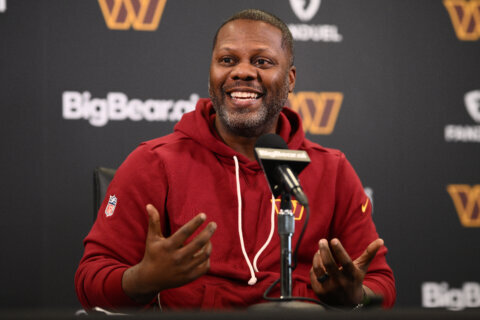Monday’s announcement that the D.C. region’s football team would be abandoning the Redskins brand marks the end of a decadeslong push to shift the team away from a historically racist and oppressive term.
The National Congress of American Indians said it first appeared as a derogatory term in the 1880s when the federal government began advertising bounties for the scalps of Native Americans.
The team is among the oldest franchises in the National Football League. It has used the “Redskins” moniker since 1933, when it was based in Boston.
Earlier, when the team started in 1932, it was called the “Braves.”
Founding owner George Preston Marshall moved the Redskins to D.C. for the 1937 season.
It was claimed the name honored coach William “Lone Star” Dietz’s dubious Indian heritage, although Marshall later told The Associated Press he opted for a new nickname simply to avoid confusion with Boston’s then-National League baseball team, which also went by the “Braves.”
The change also allowed the team to preserve its existing branding which featured a Native American head in profile.
Historians describe Marshall as a racist and segregationist. Events DC removed his statue outside RFK Memorial in June — where the team played from 1961 to 1996 as the Washington Redskins — amid a wave of anger sparked by a police officer’s killing of George Floyd in Minneapolis.
Present team owner Dan Snyder has long resisted increasingly fervent calls for the team’s name to be changed. In 2013, he infamously told USA Today that he would never do it, with emphasis on the word “never” and adding “you can put that in all caps.”
As the nation’s largest advocacy group for Native American and Alaskan peoples, NCAI has for years slammed the team’s name as an exploitative and abusive slur that “relegates our people as vestiges of the past or cartoonish caricatures.”
Monday’s announcement that the name would change is the culmination of a mutiny against Snyder by many of the team’s top sponsors and investors, including FedEx, Pepsi and Nike.
WTOP’s Brandon Millman contributed to this report.








